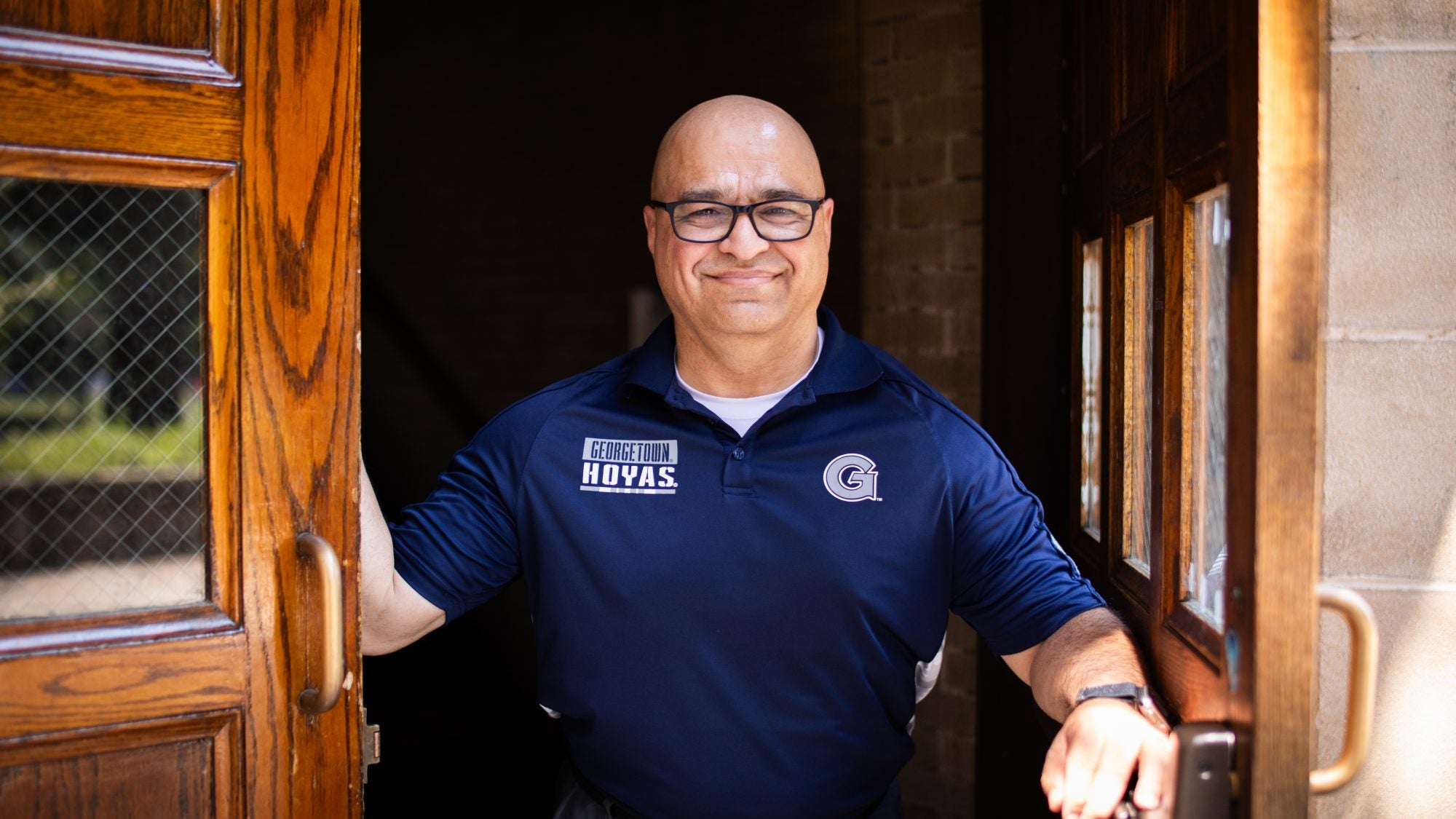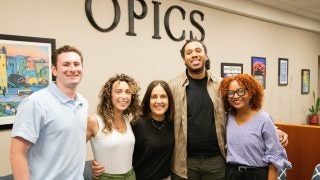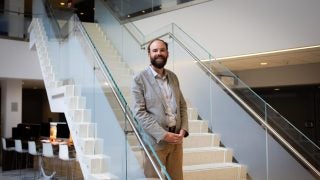Haroot Hakopian had 30 years of teaching under his belt when he decided he wasn’t ready to retire yet. Instead, it was time for a career change.
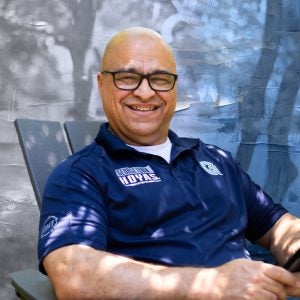
He traded his life of teaching high school English to go back to school for a Doctor of Education degree at Vanderbilt University, where he researched college success and the academic outcomes for first-generation and low-income students.
In the depths of his research, he found a job opening at Georgetown as the academic and curriculum director of the Summer College Immersion Program (SCIP), which prepares high school students from underserved backgrounds to apply for college.
“The more I found out about it, the more I fell in love with the program because it’s an incredible experience,” he said.
Almost four years later, Hakopian now serves as the assistant dean of student affairs in the School of Continuing Studies. In his role, he oversees every aspect of the student experience for the over 2,000 high school students who visit campus every summer. Through his years, he’s never wavered in his mission to help first-generation college students achieve their dreams.
In his free time, Hakopian is also an avid soccer fan and has been coaching for over 30 years. Currently, he coaches at Churchill High School and the Potomac Soccer Club.
Get to know Hakopian and his joy for uplifting first-generation college students and his love for the world’s game.
Why I made the pivot to higher education: As a teacher, I have a very direct influence with the roughly 120 kids I see each year. But that influence is focused on those specific students. I think in a leadership position, especially the one that I have now, I can impact more people, and I can impact more of the processes at the college level.
What made Georgetown stand out: I was well aware of Georgetown’s academic reputation, but then the more I found out about the whole cura personalis idea, that really resonated with me because, going back to my [doctoral program,] the big thing that we talked about was that we’ve shifted to more of a focus on students’ academic and intellectual progression and development. We’ve lost sight of the other factors cura personalis focuses on. It fascinates me because Georgetown has been doing this for such a long time with the whole Jesuit tradition.
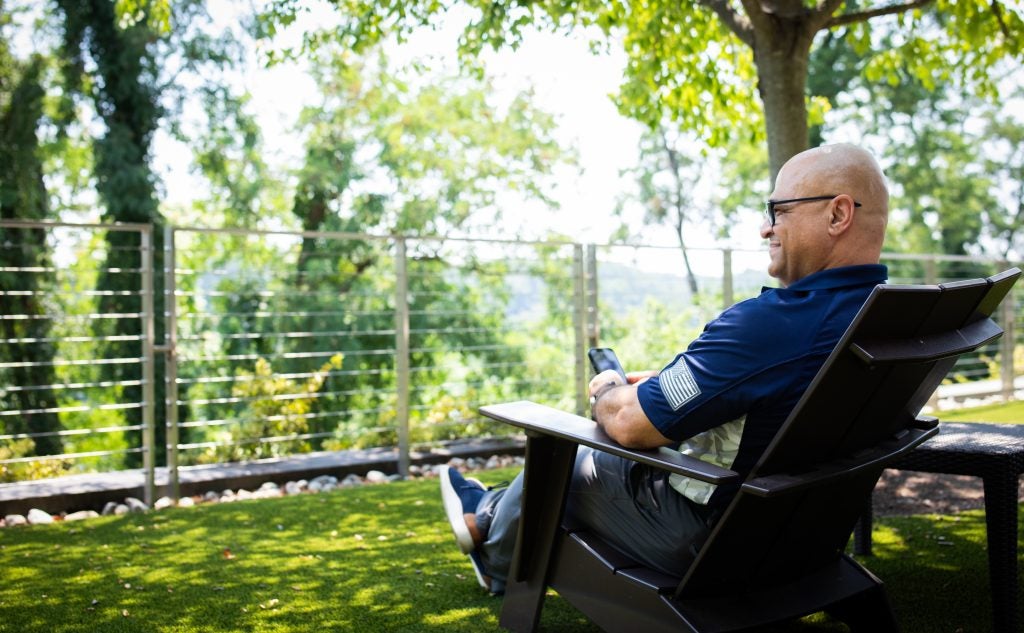
How the Summer College Immersion Program helps first-generation college students: It’s really important for students to understand how college works, but I also wanted to make navigating the entire college application process easier for them. … We also do this big thing called the Identity Project, where we have the students dig in on who they are as they’re navigating this entire college process and how who they are dictates where they’re going to apply and making them understand that there’s not just one identity. Yes, they’re designated as first-generation students, but that doesn’t mean that it limits where they’re looking, and it doesn’t mean that they should narrow their scope.
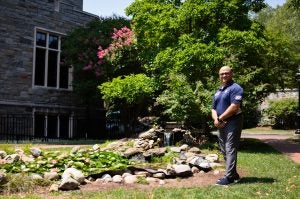 Why programs like SCIP matter: I’ve been in secondary education and have helped thousands of students go through with their college application process. I did not realize that there were schools that if you demonstrate need, they will cover 100% of that demonstrated need, including Georgetown. If I didn’t know that, what else is there that the students don’t know, especially this group of students, that we can make available to them that’ll allow them to be successful?
Why programs like SCIP matter: I’ve been in secondary education and have helped thousands of students go through with their college application process. I did not realize that there were schools that if you demonstrate need, they will cover 100% of that demonstrated need, including Georgetown. If I didn’t know that, what else is there that the students don’t know, especially this group of students, that we can make available to them that’ll allow them to be successful?
Where I find joy in my work: It’s always around the time when the students start getting accepted to all the schools they’ve applied to. They’re so happy to share their joys with us that you can’t help but smile. For us to have a small, little part in what they’re now experiencing and how they’re viewing themselves is unbelievably joyful.
My favorite part about summer at Georgetown: I park about four blocks away from campus. That walk to campus on the cobblestone streets … and when I walk up those steps right by the koi pond. Every single morning when I walk in, I look at that, and I’m like, “Wow, this is amazing.” I always see the grounds crew. I love that behind-the-scenes look because there are so many people who are doing those things to make this campus and this experience possible.
Why I love being a soccer coach: It’s the purest form of teaching because you don’t ever have to worry about motivation and whether the students want to be there. They’re all there because they want to. They’re choosing to play this particular sport. 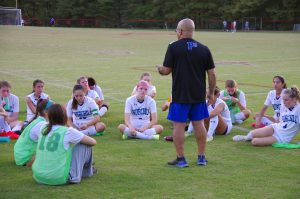
Why I keep coaching after 30 years: The students and players I had when I first started coaching are now in their late forties and early fifties. It’s fascinating to me that I’ve had these relationships with people for such a long time as a result of that sport. No matter what happens, we always have that connection.
My favorite soccer team: When I was six or seven, I can’t even remember what we were watching, but I fell in love with the team that was playing. They were all wearing orange uniforms, and I found out later that it was the Netherlands. Just because of the orange uniforms, I’ve been following the Netherlands ever since I was young, so I always root for them, and they’re phenomenal.
One word to describe Georgetown: Inclusive. We don’t just rest on the fact that we’ve created an inclusive environment or tried to create an inclusive environment. We keep trying to expand that, and it really is the spirit of Georgetown. I love being a part of that.
